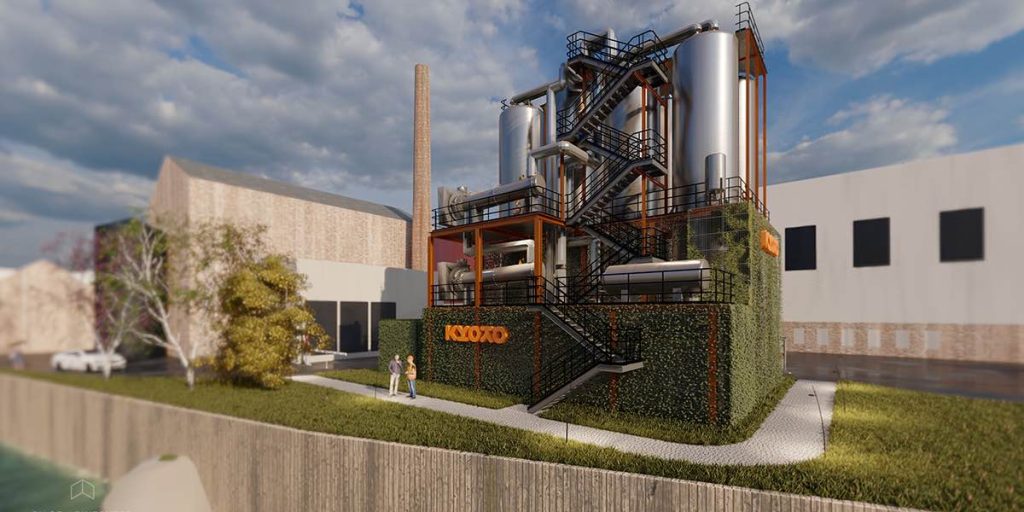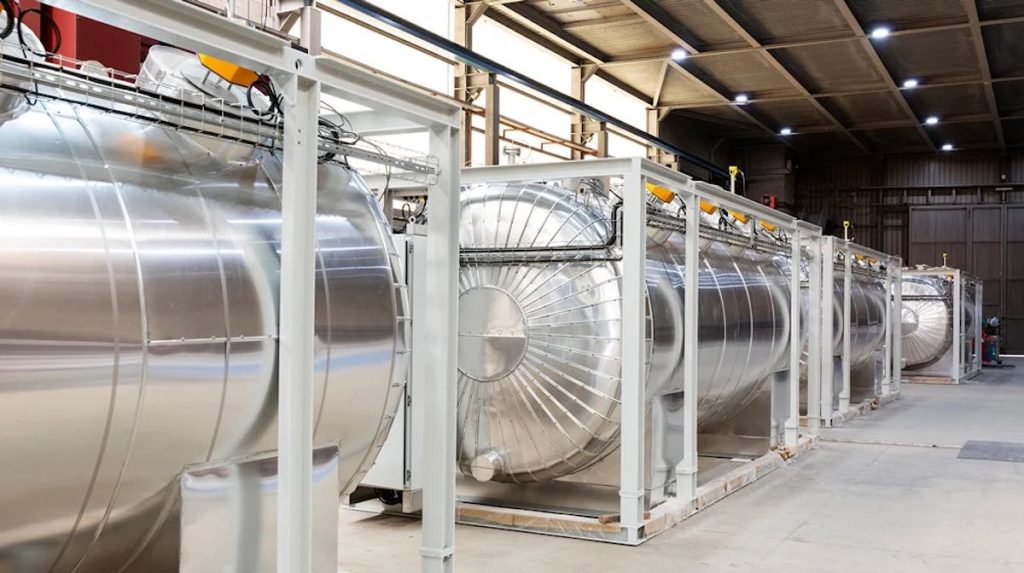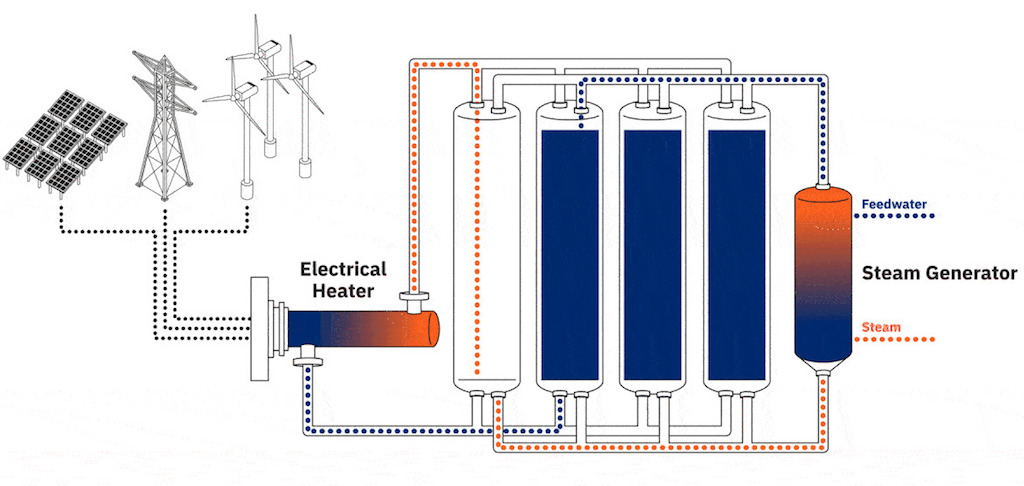
The Heatcube from Norwegian company Kyodogroup emerged as an alternative to wood-fired heat in the tea industry in rural Africa. Tim de Haas of the Kyoto Group explained that they were looking for a simple and economical solution: a mini CSP (concentrated solar power) plant. However, during development, they realized that the real value was in thermal energy storage. This led the company to redefine its approach to thermal energy storage starting in 2020.
Independent heat storage: Invention of the heatcube
How does Heatcube work?
The Heatcube stores energy in molten salts inside modular tanks, which vary in temperature between 170°C and 500°C. It uses a mixture of three salts instead of the two used in traditional CSP plants. These salts have the advantage of solidifying at low temperatures (131°C), which allows the use of more economical materials for tanks.
The system is suitable for various industrial needs, allowing customization of the heat distribution profile and pressure requirements. Electric energy from solar, wind or grid sources is used to heat the molten salts.

Components and benefits of heatcube
The Heatcube consists of three components: a charging unit, a storage and circulation system (molten salt tanks), and a heat exchanger that converts the stored heat to industrial needs. There are three heat exchanger options to provide heat: steam, hot air or thermal oils.
Key Features of Energy Storage System:
- Loading capacity: 10-30 MW
- Storage Capacity: 16-120 MW
- Download Ability: Up to 20 MW
- Steam Temperature: 170-400 °C
- Space Capacity: Approximately 250 kWh/m² (minimum savings footprint)
- Durability: More than 25 years of useful life

Importance of independent thermal storage
Independent heat storage thanks to its low cost and durability, it allows continuous distribution of solar energy. This technology is used by startups to provide heat or steam for industrial processes. Companies such as Malta, Hetrix and Rondo are examples of spin-offs leveraging this technology.
Heatcube market and potential
Although Norway has extensive energy storage in the form of hydropower, the Kyoto Group is focused on markets such as Germany and Spain. In Germany, there is a high demand for industrial heat and Heatcube is seeking to replace gas heaters, which helps reduce CO2 emissions and provides 24-hour renewable energy.
More information: www.kyotogroup.es

